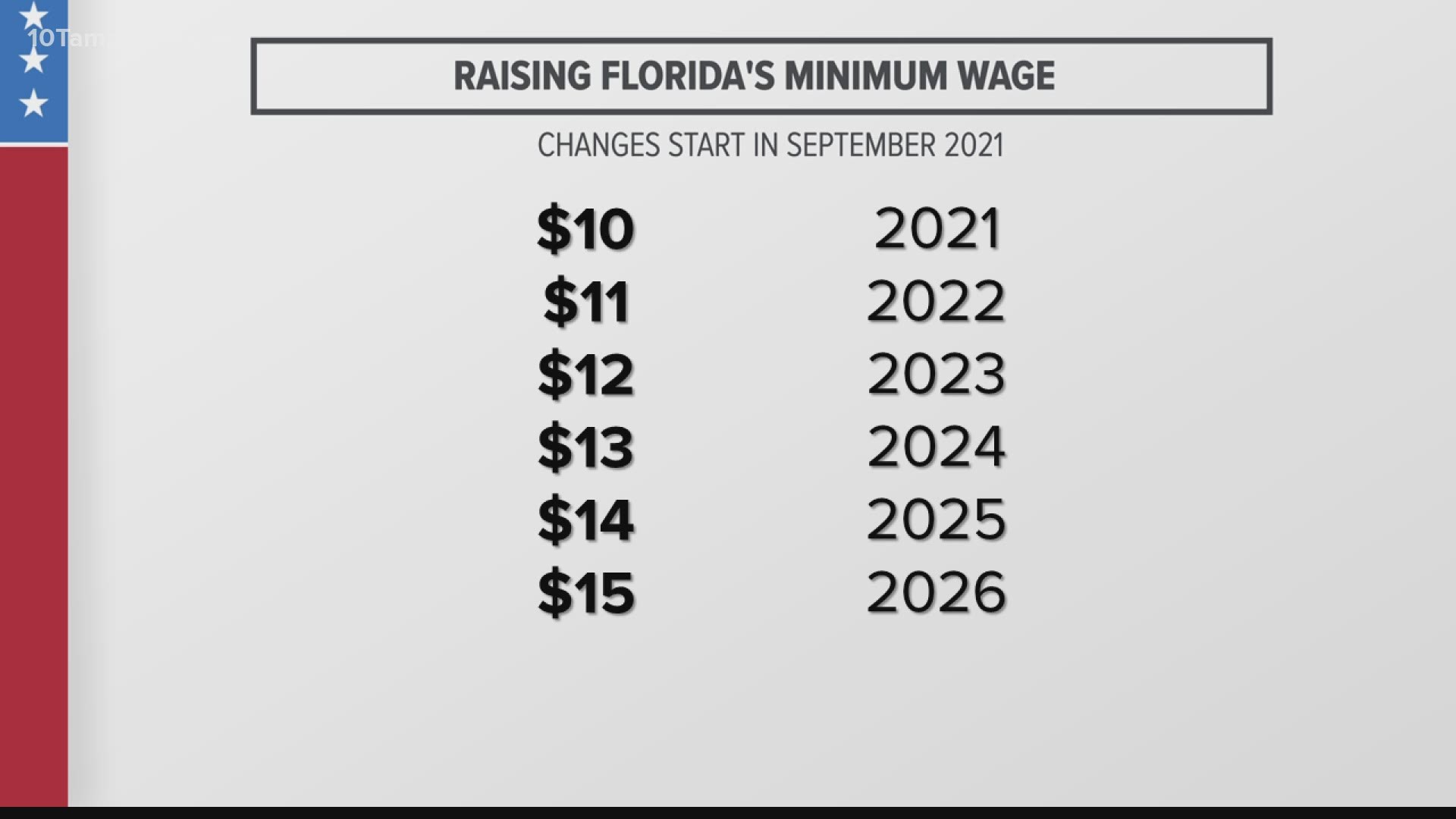ST. PETERSBURG, Fla. — Editor's note: The above video is from previous coverage.
Several states across the U.S. will be increasing minimum wage in 2024 and Florida is included in that list. However, while most other states' pay bump starts in January, Florida's will be a little later in the year.
If you're wondering why you haven't heard about Florida's wage increase in recent news, it's cause it isn't exactly new — back in 2020, Florida voters approved an amendment that would raise the state's minimum wage every year until it reached $15 per hour.
At the time, Florida's minimum wage was under $10. The approved statewide measure took effect on Sept. 30, 2021, and is set to continue increasing through Sept. 30, 2026. That's when Florida works will be at a $15-per-hour minimum. After that, wages will only increase based on inflation.
As of Sept. 30, 2023, Florida's minimum wage sits at $12. However, tipped employees earn less — starting pay is $8.98 per hour, according to the Florida Department of Commerce.
The next minimum wage increase will be on Sept. 30, 2024, when the state raises non-tipped wages to $13 per hour.
However, the minimum wage increase still might not be enough for some people to afford living in the Tampa Bay area. Rising inflation, a red-hot housing market, population boom and housing insurance crisis are all factors keeping rent prices high.
A study earlier this year shows that the average rent in Tampa was $2,118.75. To afford that, Tampa residents need to make around $84,750.12, however, they would still be considered rent-burdened.
With a $15 hourly wage, a worker is looking to earn around $31,200 a year before tax.
The Department of Housing and Urban Development (HUD) defines rent-burdened families as those “who pay more than 30 percent of their income for housing” and “may have difficulty affording necessities such as food, clothing, transportation, and medical care.”
A severe rent burden is defined as paying more than 50% of one’s income on rent.
Previous 10 Tampa Bay coverage contributed to this report.

